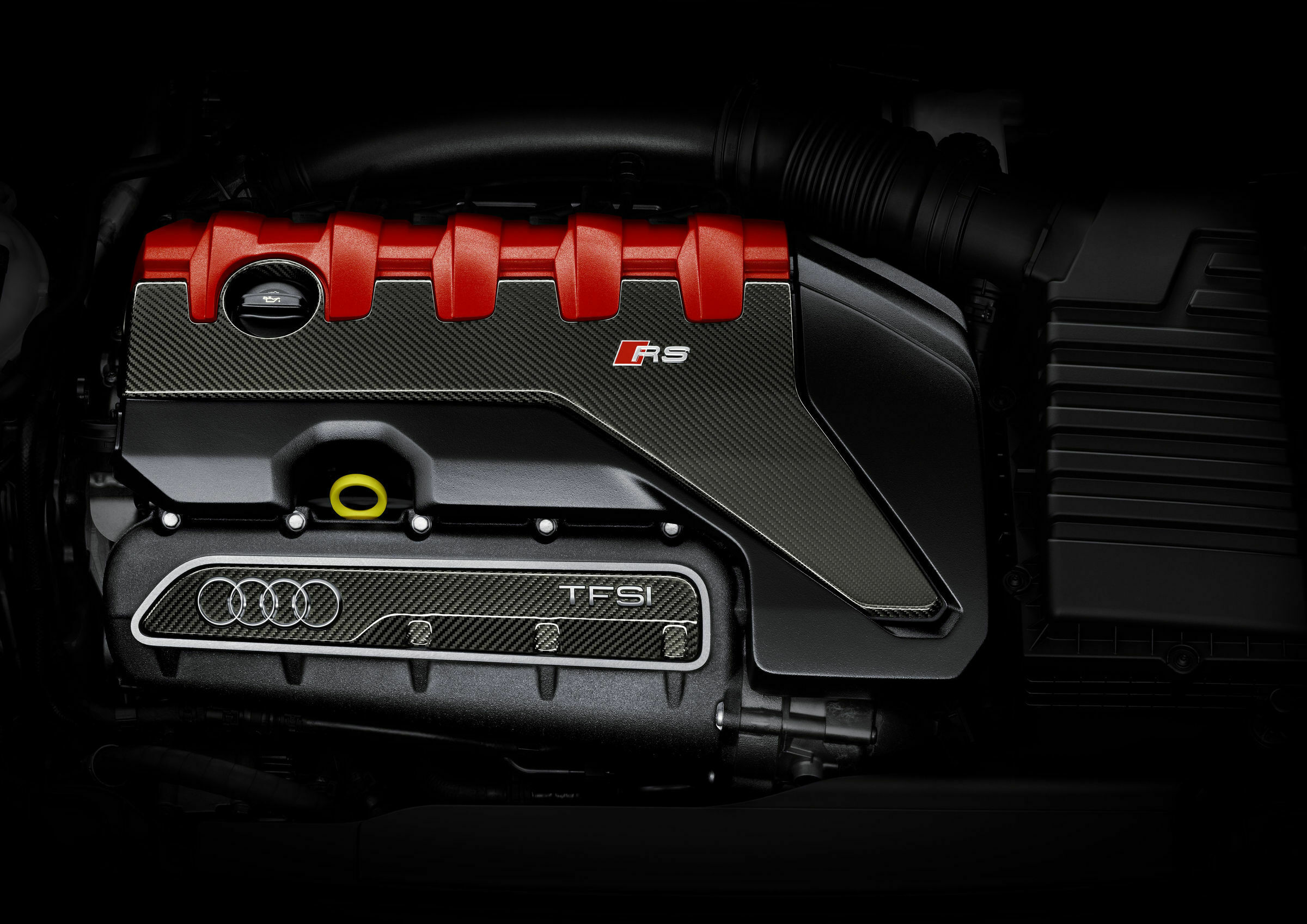Ninth victory in a row: Audi 2.5 TFSI engine named “Engine of the Year” once again
- Five-cylinder continues winning streak in its displacement class
- Most powerful series-production five-cylinder featuring 294 kW (400 hp) and 480 Nm (354 lb-ft) of torque
- Head of Technical Development Oliver Hoffmann: “Icon of the Audi brand”
Audi continues its winning streak at the “International Engine of the Year Awards”: For the ninth time in a row, the jury selected the brand’s 2.5 TFSI as the best engine in the 2 to 2.5-liter category. Its 294 kW (400 hp) makes it the most powerful series-production five-cylinder on the global market.
Above all, the members of the judging panel of the “International Engine of the Year Awards” praised the engine’s impressive torque of 480 Nm (354 lb-ft), which is available at just 1,700 rpm, as well as the distinctive sound of the turbo unit. This sound is created by neighboring cylinders firing alternately to more distant cylinders, resulting in a unique rhythm. “The five-cylinder has been an icon of our brand for more than 40 years,” explains Oliver Hoffmann, Head of Technical Development at Audi Sport GmbH. “Two years ago we completely redesigned the 2.5 TFSI and changed the crankcase to an aluminum version.”
While forming the heart of the Audi TT RS Coupé (combined fuel consumption in l/100 km: 8.4–8.2* [28–28.7 mpg]; combined CO2 emissions in g/km: 192–187* [300.9–309 g/mi]) and the TT RS Roadster (combined fuel consumption in l/100 km: 8.5–8.3* [27.7–28.3 mpg]; combined CO2 emissions in g/km: 194–189* [304.2–312.2 g/mi]), the five-cylinder also powers the Audi RS 3 Sedan (combined fuel consumption in l/100 km: 8.4–8.3* [28–28.3 mpg]; CO2 emissions in g/km: 191–188* [302.6–307.4 g/mi]) and the RS 3 Sportback (combined fuel consumption in l/100 km: 8.4–8.3* [28–28.3 mpg]; CO2 emissions in g/km: 192–189* [304.2–309 g/mi]). The 2.5 TFSI allows the TT RS and TT RS Roadster to accelerate from 0 to 100 km/h (0–62 mph) in 3.7 and 3.9 seconds respectively, with the RS 3 Sedan and RS 3 Sportback achieving this in 4.1 seconds. The top speed for all four models is 250 km/h (155 mph) as standard, with the option of increasing this to 280 km/h (174 mph).
The awards for the “International Engine of the Year” have been presented annually since 1999. An international panel of 65 motorsport journalists select the best engines of the year in a number of different categories. This year is the fourteenth time in total that Audi has won the globally renowned prize.
Consumption figures for the specified models:
Audi TT RS Coupé:
Combined fuel consumption in l/100 km: 8.4–8.2* (28–28.7 mpg)
Combined CO2 emissions in g/km: 192–187* (300.9–309 g/mi)
Audi TT RS Roadster:
Combined fuel consumption in l/100 km: 8.5–8.3* (27.7–28.3 mpg)
Combined CO2 emissions in g/km: 194–189* (304.2–312.2 g/mi)
AUDI RS 3 Sedan:
Combined fuel consumption in l/100 km: 8.4–8.3* (28–28.3 mpg)
Combined CO2 emissions in g/km: 191–188* (302.6–307.4 g/mi)
AUDI RS 3 Sportback:
Combined fuel consumption in l/100 km: 8.4–8.3* (28–28.3 mpg)
Combined CO2 emissions in g/km: 192–189* (304.2–309 g/mi)
* Figures dependent on the type of tires/wheels used.
